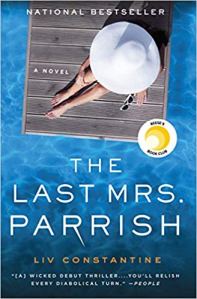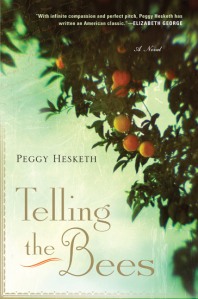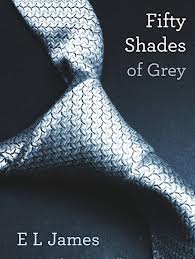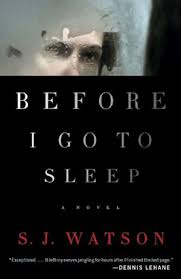 The Last Mrs. Parrish by Liv Constantine
The Last Mrs. Parrish by Liv Constantine
Where did you get it? Purchased in-store at Barnes & Noble.
Why did you read it? My friend is a retired school teacher and she is in a book club for the first time in her life. She lives across the country but we text a lot. She mentioned her new book club was reading this next and after reading about it I decided to read it too so we could discuss it. We were going to keep pace with each other and read it “together” but that’s not what happened… I bought it and read it in two sittings. She doesn’t even have it yet! I probably shouldn’t do read-alongs, haha.
What’s it about? It’s about a woman, Amber Patterson, who feels she deserves more than what life has handed her and sets out to take what she feels entitled to from a fabulously wealthy couple, Daphne and Jackson Parrish. The book is broken into two parts and the first part is told from the point of view of Amber. She befriends Daphne and bonds with her through a shared, sad life experience, and soon she is joining in on family functions, committee meetings, holidays, extravagant trips. Daphne feels like she has found a soulmate, almost a sister, in Amber, and before long she is her closest friend and confidante. But Daphne is being set up, and you know it right from the beginning. Amber is scheming and plotting, and the reader is privy to all of her ugly thoughts about the Parrish’s and their daughters. Her manipulation of Daphne makes for tense reading. She is after Jackson and nothing will stop her. It’s all so easy and she’s determined to get what she wants. Part ll is told from Daphne’s point of view. The insider perspective on the Parrish marriage and lifestyle is much different, and what is behind the curtain of wealth and privilege is awful and ugly. Everything you thought you knew from Part 1 is turned upside down.
What did you like? This book is super entertaining. If you like reading how the 1% live, you’ll like the first part of the book. Think champagne wishes and cavier dreams. It’s fast paced and binge-worthy. Amber is an envious bitch, and I marveled at her ability to act kind and caring while thinking outrageously mean thoughts. I was afraid for Daphne through the entire first part of the book. Daphne is the textbook-perfect wife, but appearances are deceiving. Jackson is.. holy crap, he is not as he seems. Fabulously wealthy, gorgeous, powerful, generous. And also sick, abusive, vindictive. Thankfully, all these flawed humans get the life they deserve in the end.
What didn’t work for you? I saw the “twist” coming a mile away, but that didn’t detract too much from the reading experience. I found Part ll a little repetitive, but overall I really enjoyed the book.
Share a quote or two:
“Everything had begun with such promise. And then, like a windshield chipped by a tiny pebble, the chip turned into deep cracks that spread until there was nothing left to repair.”
“His weapons were kindness, attention, and compassion—and when victory was assured, he discarded them like spent casings, and his true nature emerged.”
Who would enjoy this book? Readers who enjoy a peek into a completely different lifestyle, and those who appreciate women’s fiction and suspense. I don’t think I’d go so far as to call this a thriller or a crime story. I also wouldn’t call it a romance even though there was a good bit of sex. It’s pretty dark.
Anything else to add? The author, Liv Constantine, is actually a pen name for a writing duo, sisters Lynne and Valerie Constantine. The novel was a Reese Witherspoon book club pick, and is being adapted as a TV series by Amazon. I think it’ll work really well on the small screen. While I was reading it I was often reminded of the 2018 movie A Simple Favor. It has a lot of the same ingredients: fabulous wealth, deception, power.
HAVE YOU READ The Last Mrs. Parrish? Did you like it? Would you recommend it? Leave me a note in the comments.
Filed under: book clubs, Book Reviews | Tagged: book club, book review, Liv Constantine, Reese Witherspoon, suspense, The Last Mrs. Parrish | 6 Comments »


















